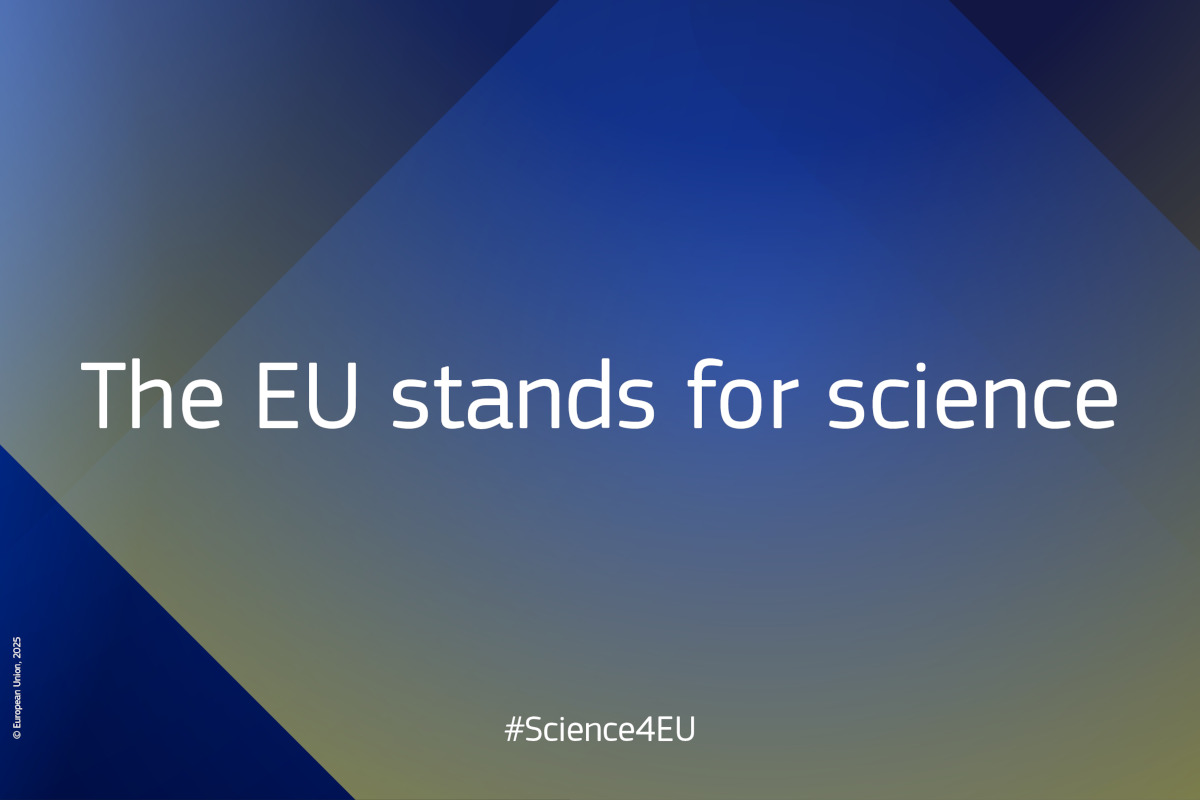EU-funded researchers and experts are joining forces across borders to combat child sexual abuse, exploitation and human trafficking using AI-powered solutions.
Special series

Science4EU
The Science4EU campaign shows how the EU stands for science. It shines a spotlight on the scientists, researchers, and innovators working with EU support to improve our lives and shape a better future for everyone.
Do you also stand for science?
Podcast
Media AV Portal Audio
More stories

EU-funded researchers are shedding light on how digital media use is impacting teenagers and what parents, teachers and policymakers can do about it.
Most popular
-
1By Michaela Nesvarova
-
2
-
3By Michaela Nesvarova
-
4By Sofia Sanchez Manzanaro
-
5
Top videos
Behind the screens: global teams unite against child abuse and trafficking
30 July 2025
Private video
30 July 2025
Past articles
3D printing is poised to transform the world as we know it. Consumer goods will be personalised and produced on demand, while manufacturers will be able to use 3D printing to come up with radical new designs for everyday objects. But how will this happen, and when?
Researchers are using a lacquer made from processed tomatoes to coat cans of food as part of a drive to replace food packaging with healthier, natural alternatives.
Copyright law will struggle to be relevant for 3D-printed material, according to Joren De Wachter, an intellectual property strategist who advises companies and investors on the best way to use, understand and value the intellectual property of 3D-printed goods.
At Easter, the temptation of chocolate lurks everywhere. Resisting the urge to overdo it is an important part of eating healthily. But medical researchers say that some of the ingredients in cocoa could play a role, as part of a nutritious diet, in preventing cardiovascular problems.
Made-to-measure glasses would be more comfortable than normal ones, look better and work more effectively, according to one of a group of research projects that are developing ways to 3D print healthcare products on demand.
The freedom of running your own company can make it easier to combine work with family. That’s according to human geneticist and entrepreneur Dr Saskia Biskup, the first-prize winner of the EU Prize for Women Innovators 2014. She is the co-founder of CeGaTGmbH, a leading German biotech company that conducts diagnostic testing for genetic diseases.
Scientists at the University of Darmstadt, in Germany, have trapped a pulse of light inside a crystal for a minute, and used it to store an image, raising the possibility of light-based computers that could work faster than today’s electronic processors and transistors.
Researchers are working to revolutionise mealtimes for elderly people with swallowing problems – by 3D-printing their food.
The freedom of running your own company can make it easier to combine work with family. That’s according to human geneticist and entrepreneur Dr Saskia Biskup, the first-prize winner of the EU Prize for Women Innovators 2014. She is the co-founder of CeGaTGmbH, a leading German biotech company that conducts diagnostic testing for genetic diseases.
Dr Phil Reeves, managing director of Econolyst, a global 3D printing consultancy, believes research needs to be coordinated across the EU to push forward 3D printing and give us mass-personalised goods made locally, on demand.
High-tech LED technology and sophisticated optical systems are being used to recreate natural sunlight.
Researchers are developing ways to repair skull fractures – or reconstruct faces damaged in accidents - by using live cells in 3D-printed implants.
In April, Horizon learns about devices that can print liquefied food, machines to make personalised spectacles, and the research that is paving the way for the printing of implants using live cells.
French winemakers are looking at buying potential future vineyards in Scotland - it’s one example of how companies need to use climate services to help them adapt to climate change, according to Yvo de Boer, former head of the UN’s Framework Convention on Climate Change, who now works as global chairman of Climate Change and Sustainability Services at advisory firm KPMG.
Imagine the scenario, an earthquake strikes a small Mediterranean city, forcing people out of their homes and shattering roads. Then, violent aftershocks cause a landslide, burying one of the city suburbs, but rescuers can’t get in because the roads have been damaged.
Researchers are developing ways to treat killer diseases like cancer using nanotechnology.
New optical techniques use light to make diagnoses from a single drop of blood, or to guide surgeons during operations.
Imagine the scenario, an earthquake strikes a small Mediterranean city, forcing people out of their homes and shattering roads. Then, violent aftershocks cause a landslide, burying one of the city suburbs, but rescuers can't get in because the roads have been damaged.
The weather is becoming more extreme, and that means Europe needs better coastal and river flood forecasting and smarter building design to help contain the cost of flooding.
Scanning the earth’s surface to check for volcanic changes will improve volcano early warning systems when combined with ground-based measurements, according to Dr Giuseppe Puglisi, of Italy’s National Institute of Geophysics and Volcanology. Dr Puglisi manages the EU-funded MED-SUV research consortium which brings together monitoring techniques so that it can warn decision-makers when there’s a hightened risk of an eruption.


























